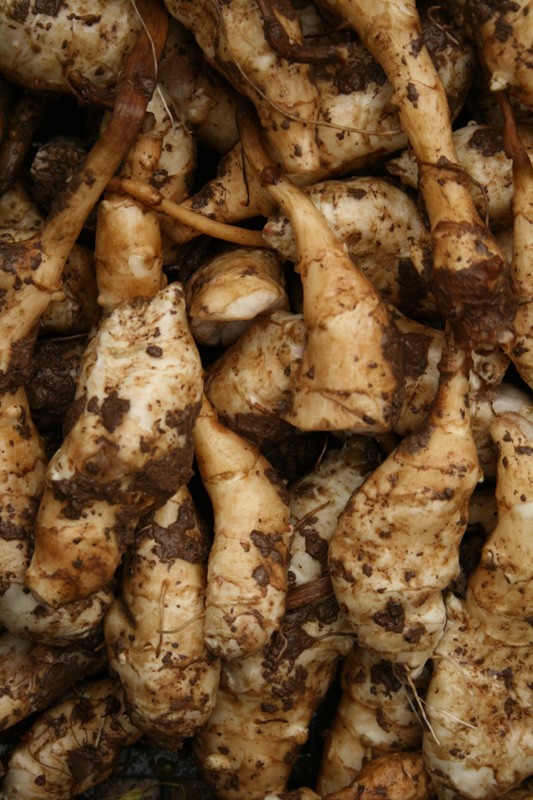
January 13, 2011
Small boxes will have:
* jerusalem artichokes (Camel CSA)
* leeks (Jeremy Brown, St Kew Harvest)
* savoy cabbage (Jeremy)
1.5kg potatoes (Benbole Farm)
onions (Restharrow Farm, Trebetherick)
carrots (Restharrow Farm)
parsnips (Restharrow Farm)
Standard boxes will have the same plus:
extra potatoes
extra jerusalem artichokes
swede (Restharrow Farm)
sprout stalk (Restharrow Farm)
* = grown to organic principles
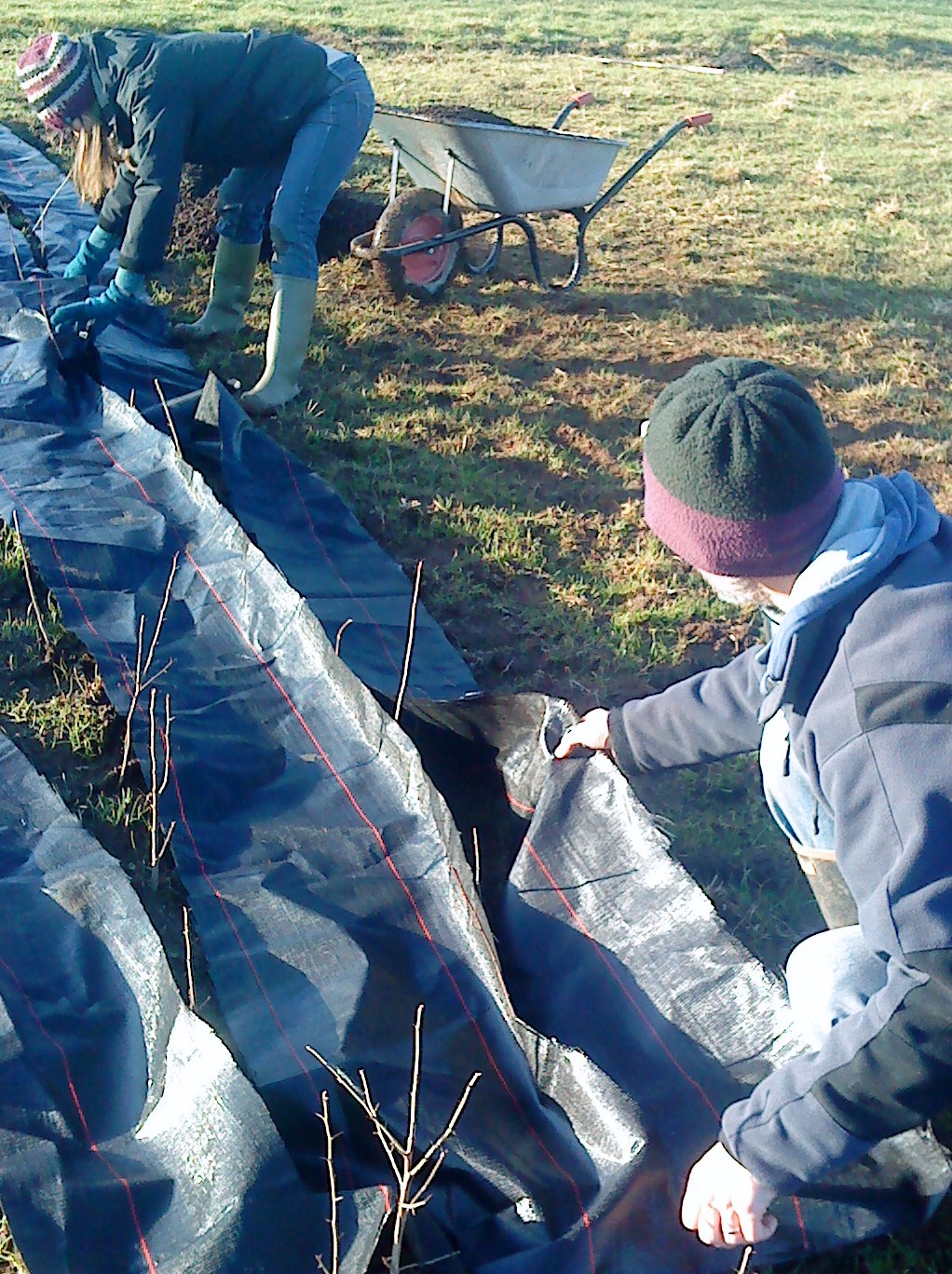
January 11, 2011
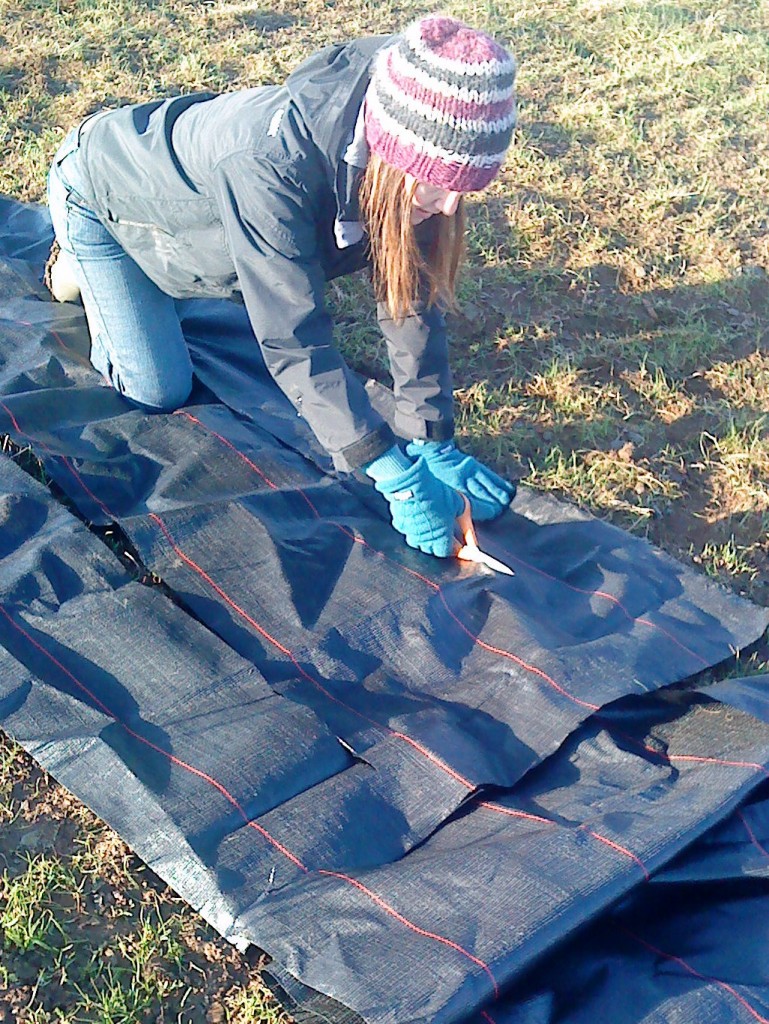
Our volunteer growers have completed the first task of the year. They’ve laid weed-suppressing plastic and compost around the newly-planted native hedge that’ll shelter our crops from the worst of the Cornish weather.
Many thanks to expert grower Jane Mellowship and her team – Cath, Charlotte, Danny, Finn (7), Keira (5), Mark M, Mike S.
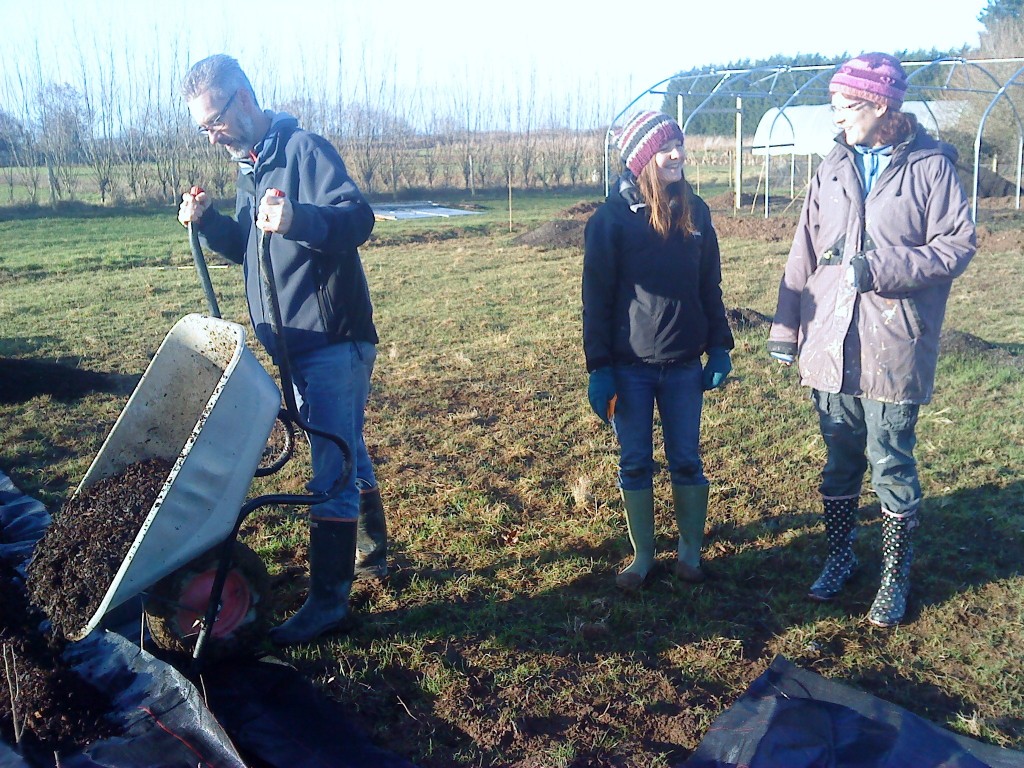
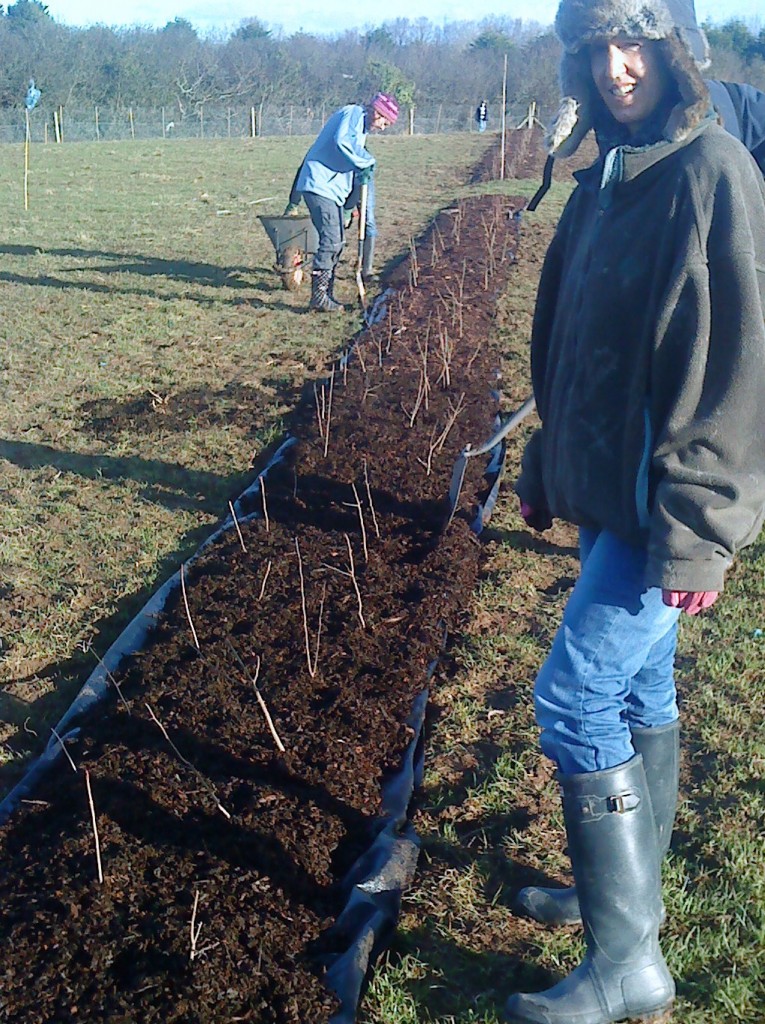
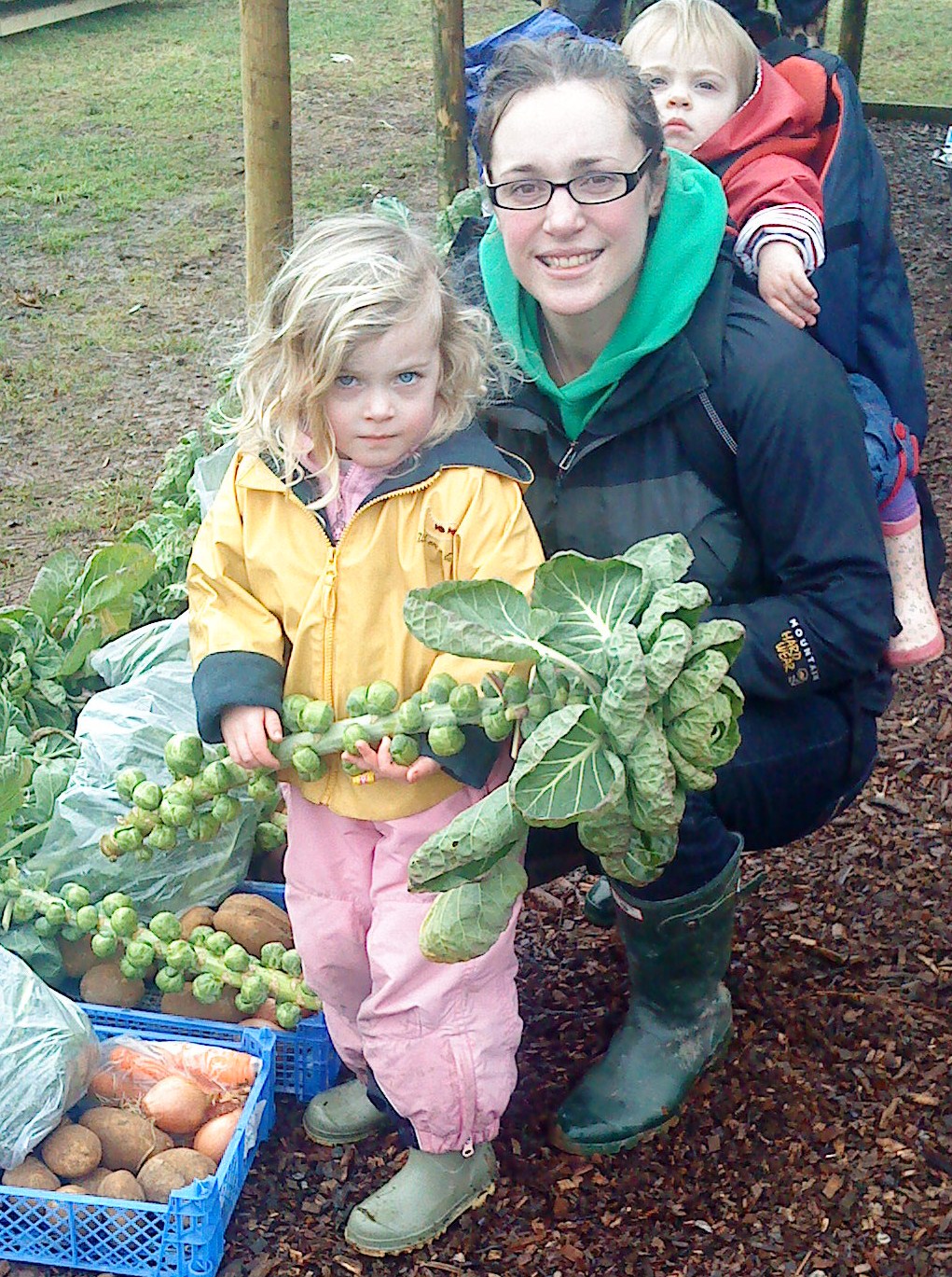
January 8, 2011
Our pickers and packers dodged torrential showers and slithery mud to fill our first seasonal weekly veg boxes of 2011.
Many thanks to team members Anne, Charlotte, Jenny, Kim, Mike S and Trish F, aided by Arwyn (3) and Seren (1)
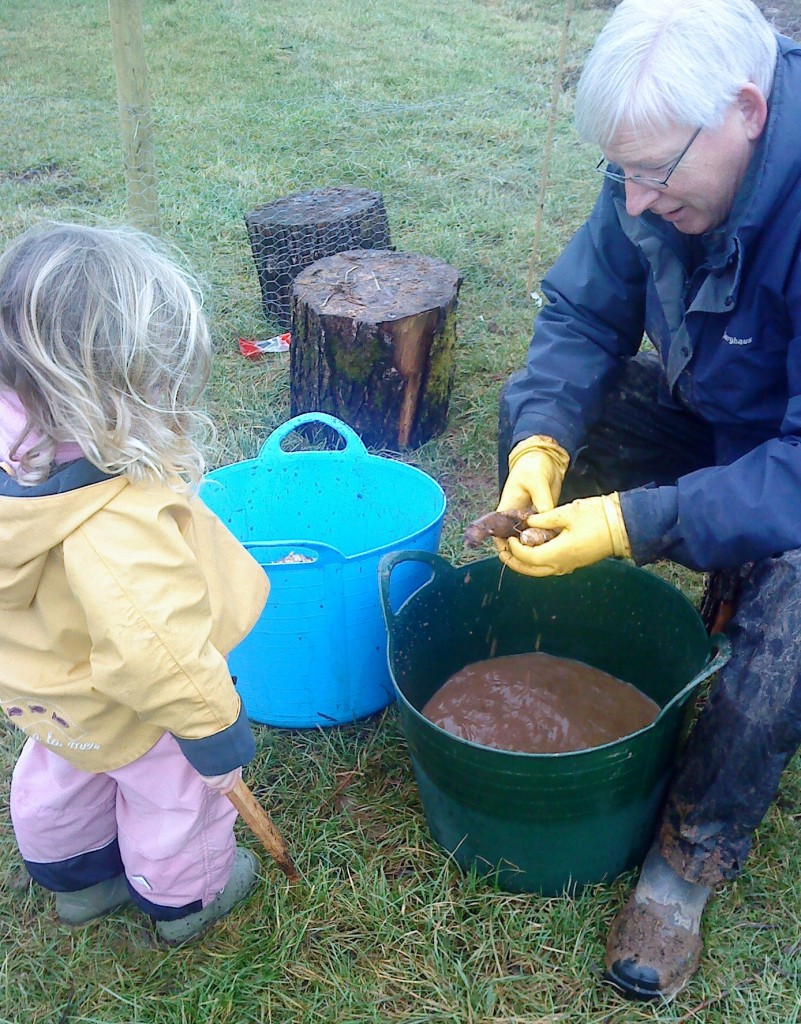
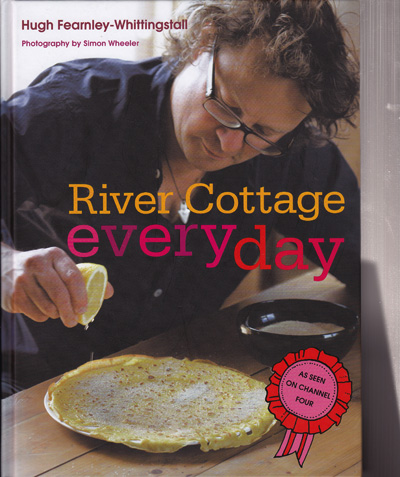
January 7, 2011
A recipe from Hugh Fearnley-Whittingstall’s new River Cottage Everyday cookbook. ‘Soft, buttery, wilted leeks bring a lovely sweetness to any kind of lightly cooked cabbage or greens,’ he says. ‘Easy to throw together, can be made with different seasonal green throughout most of the year and works as a side dish to everything …’ It’s just got to be worth trying.
Serves 4
Preparation and cooking about 15-20 minutes
Ingredients
about 500g leeks
a knob of unsalted butter
1 savoy or other green cabbage, 2 heads of spring greens, or a few bunches of curly kale
sea salt and freshly ground black pepper
Method
Trim the leeks, slice them finely (maximum 5mm) and give them a good rinse to get rid of any grit. Heat the butter in a large frying pan or wide saucepan and add the leeks with a pinch of salt. Let them cook gently for 5-6 minutes, stirring or shaking the pan occasionally, until wilted and tender.
Meanwhile, grim and coarsely shred the cabbage, greens or kale. Cook lightly – in either a steamer or a large saucepan of salted water – for 3-4 minutes, until wilted and tender but not too soft. Remove from the heat immediately, drain well and let the excess moisture steam off for a minute or so. Then add to the pan of buttery leeks, along with some more seasoning, and stir over a low heat for about a minutes until thoroughly combined. Serve straight away.
In theory you can use any leftovers for bubble and squeak … but in practice there rarely are any.

January 6, 2011
Small boxes will have:
2 kg potatoes (Benbole farm)
* leeks (Jeremy Brown, St Kew Harvest)
onions (Restharrow Farm, Trebetherick)
carrots (Restharrow Farm)
sprout stalk (Restharrow Farm)
curly kale (Restharrow Farm)
Standard boxes will have an extra 500g potatoes plus:
parsnips (Restharrow Farm)
red cabbage (Restharrow Farm)
* jerusalem artichokes (Camel CSA)
* = grown to organic principles
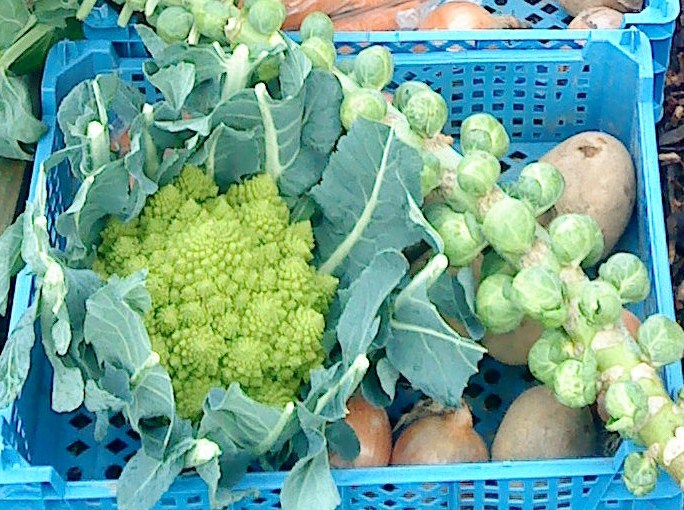
January 1, 2011
We wish a happy and bountiful New Year to all our friends and fellow vegetable growers.
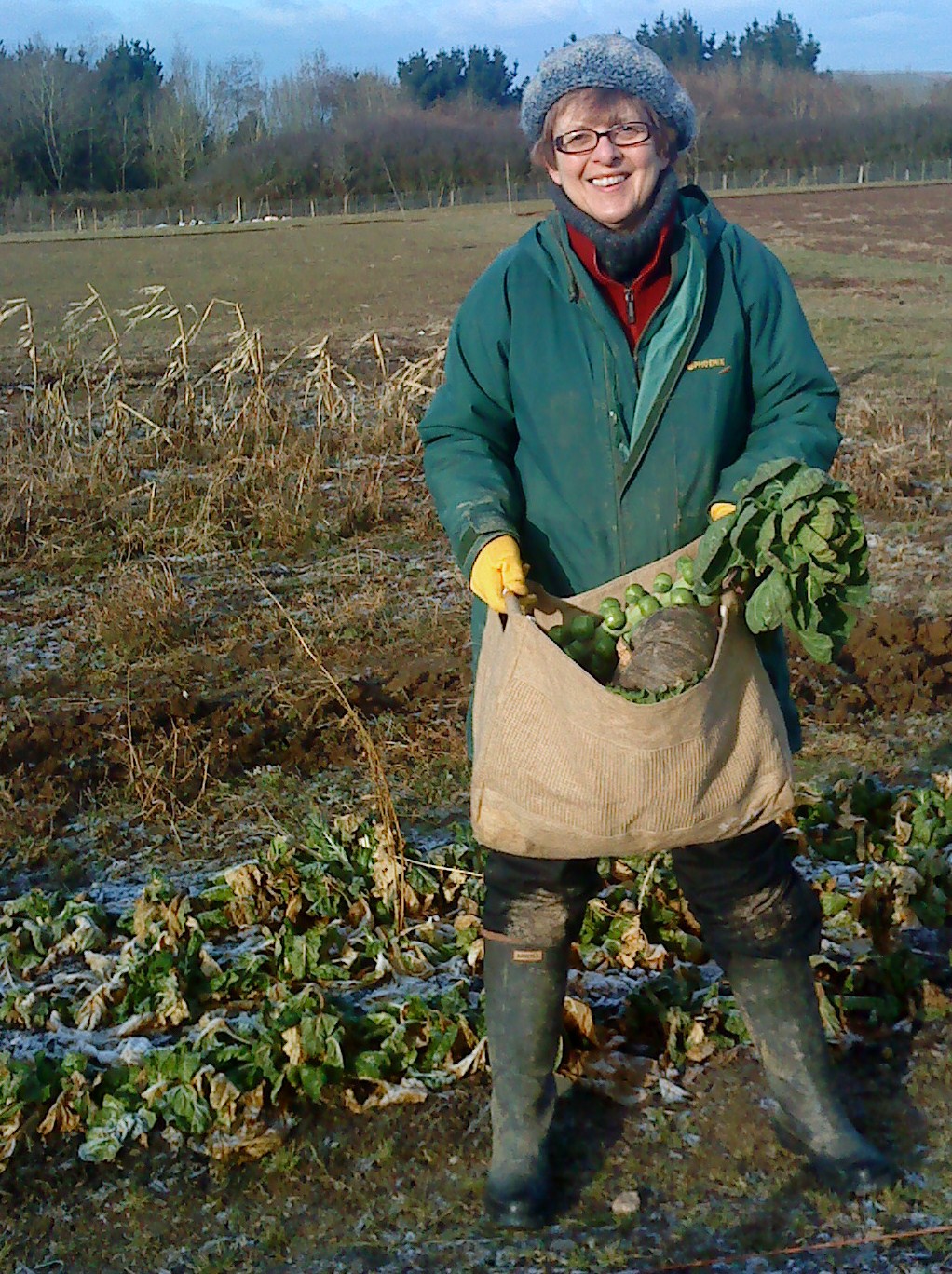
December 24, 2010
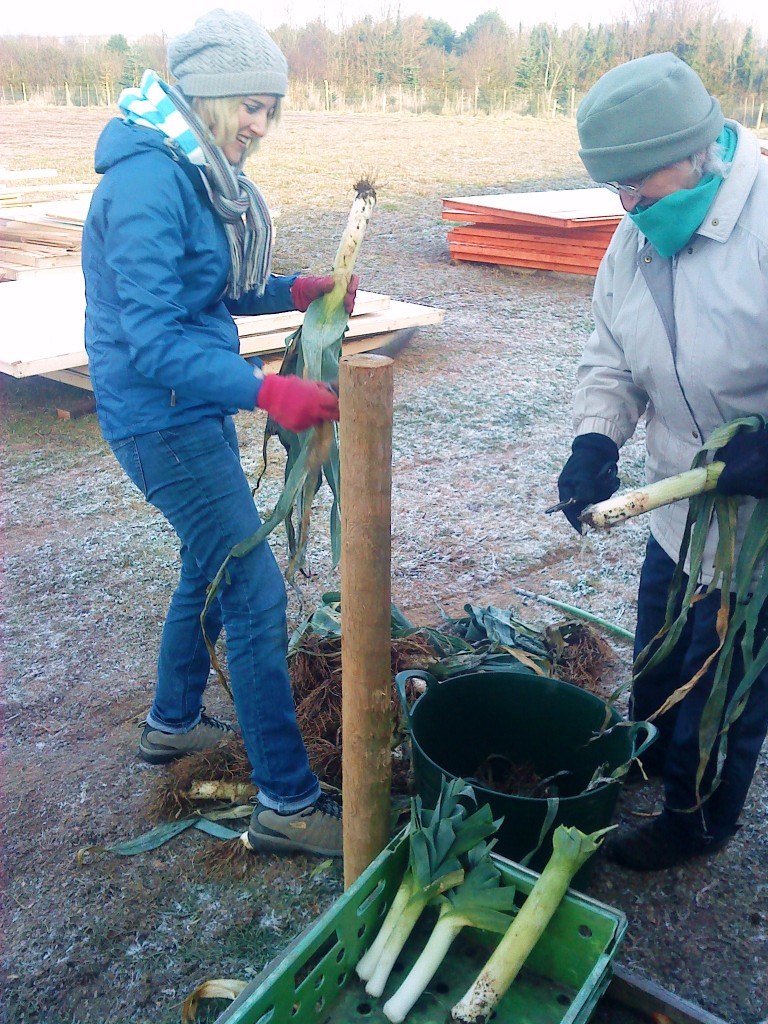
Camel CSA members are enjoying an awesome selection of fresh, seasonal produce from north Cornwall in their Christmas veg boxes.
Our commitment to eating local food and reducing food miles has paid off. We can blissfully ignore rumours of a national Brussels sprouts shortage and avoid supermarket mayhem.
Happy Christmas everyone!
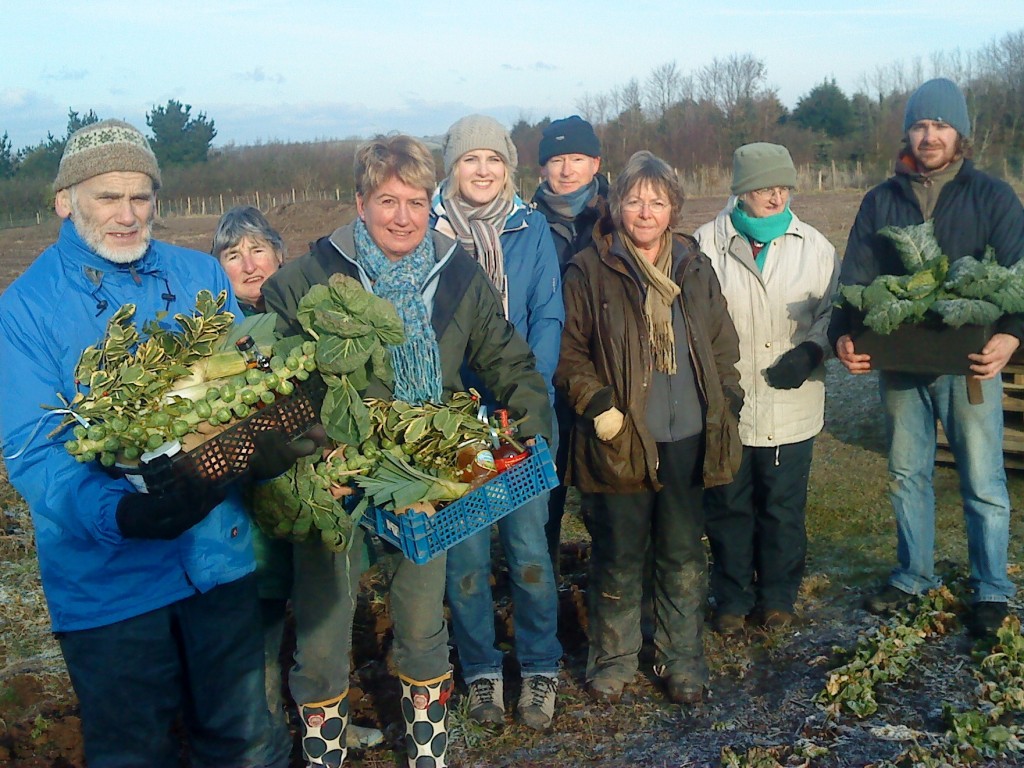
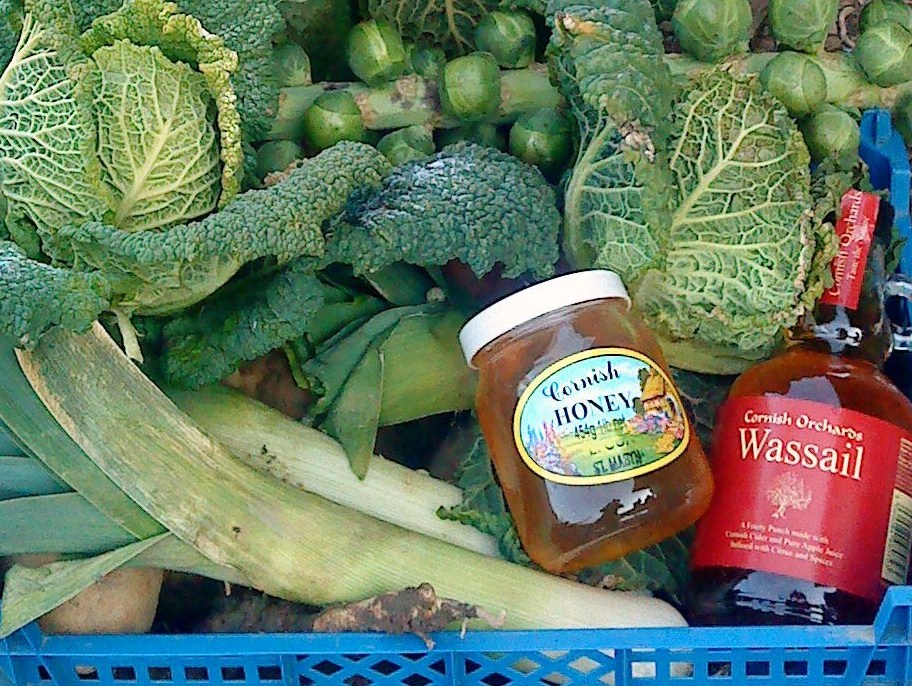

December 23, 2010
Jamie Oliver suggests this as a luxurious alternative to Christmas roast potatoes. Of course, if you’re catering for lots of people, you could always have the gratin as well as the roasties.
Serves 8-10
Preparation: 15 minutes
Cooking: about an hour
Ingredients
a large knob of butter
200ml semi-skimmed milk
300ml double cream
2 bay leaves
2 cloves of garlic, peeled and finely sliced
sea salt and freshly ground black pepper
2.5kg potatoes, peeled and thinly sliced
a handful of fresh thyme
a handful of freshly grated parmesan cheese
olive oil
6 rashers of streaky bacon, chopped
a handful of vac-packed chestnuts, peeled and crumbled
Method
Preheat the oven to 200C/gas 6. Butter the inside of an ovenproof dish, around 30cm x 30cm, and at least 6cm deep.
Pour the milk and cream into a wide pan with the bay leaves and garlic. Bring to the boil, then simmer gently for a minute or two. Remove from the heat and season with salt and pepper.
Add the potatoes and most of the thyme leaves and stir well. Spoon into the gratin dish and shake to even everything out. Sprinkle with the parmesan then cover with an oiled piece of foil. Bake for 45 to 50 minutes.
Meanwhile, fry the bacon in a little olive oil until crispy and golden. Add the remaining thyme and stir in the chestnuts. When your gratin is ready, remove the foil and spoon the bacon and chestnut mixture over the top. Pop it back in the oven for another 10 minutes until gorgeous and crispy on top.

December 20, 2010
Here are the contents we’re hoping to include in our Cornish veg boxes this THURSDAY 23 December. Obviously the exact contents are ‘weather permitting’, but they do include some local Cornish treats!
There’ll be no boxes on Friday 31 December – the next vegetable box day will be Friday 7 January 2011.
Merry Christmas to all our friends!
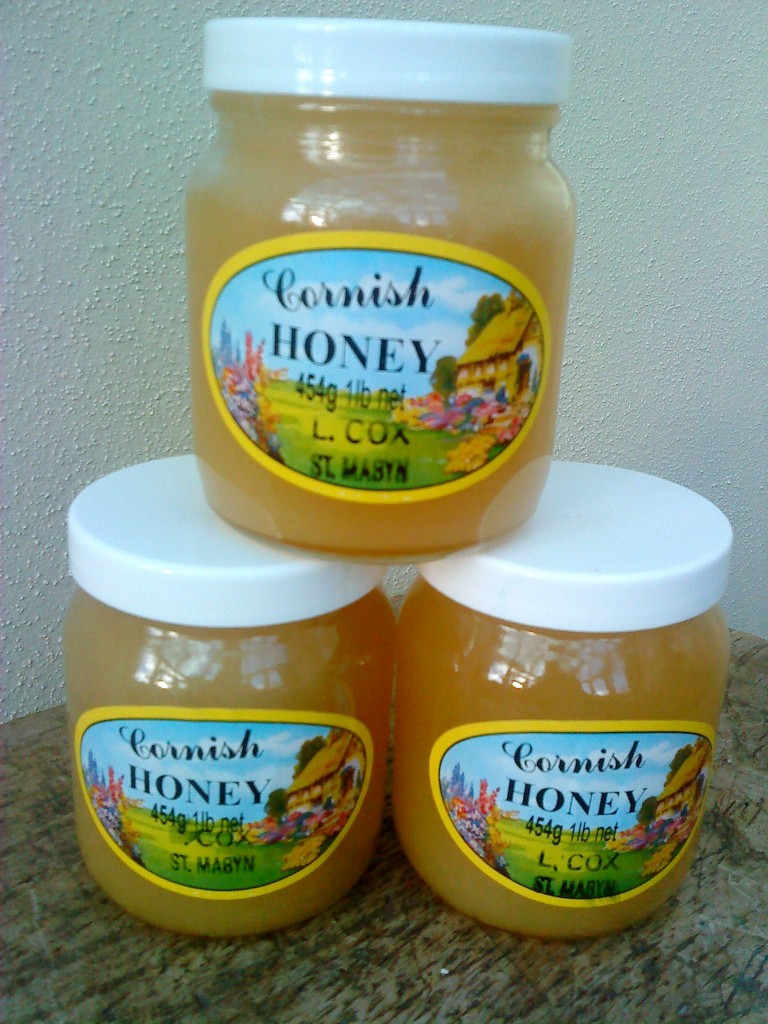
Small boxes will have:
potatoes (Benbole Farm, St Kew Highway)
* parsnips (Camel CSA)
* leeks (Jeremy Brown, St Kew Harvest)
* savoy cabbage (Jeremy)
onions (Restharrow Farm, Trebetherick)
sprout stalk (Restharrow Farm)
Cornish honey (Lewis Cox, St Mabyn)
Wassail – a fruity punch made from Cornish cider and apple juice (Cornish Orchards)
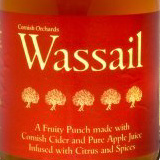
Standard boxes will have above plus extra potatoes and onions as well as:
* squash (Jeremy)
carrots (Restharrow Farm)
romanesco (Restharrow Farm)
* garlic (Mark Norman)
* = grown to organic principles
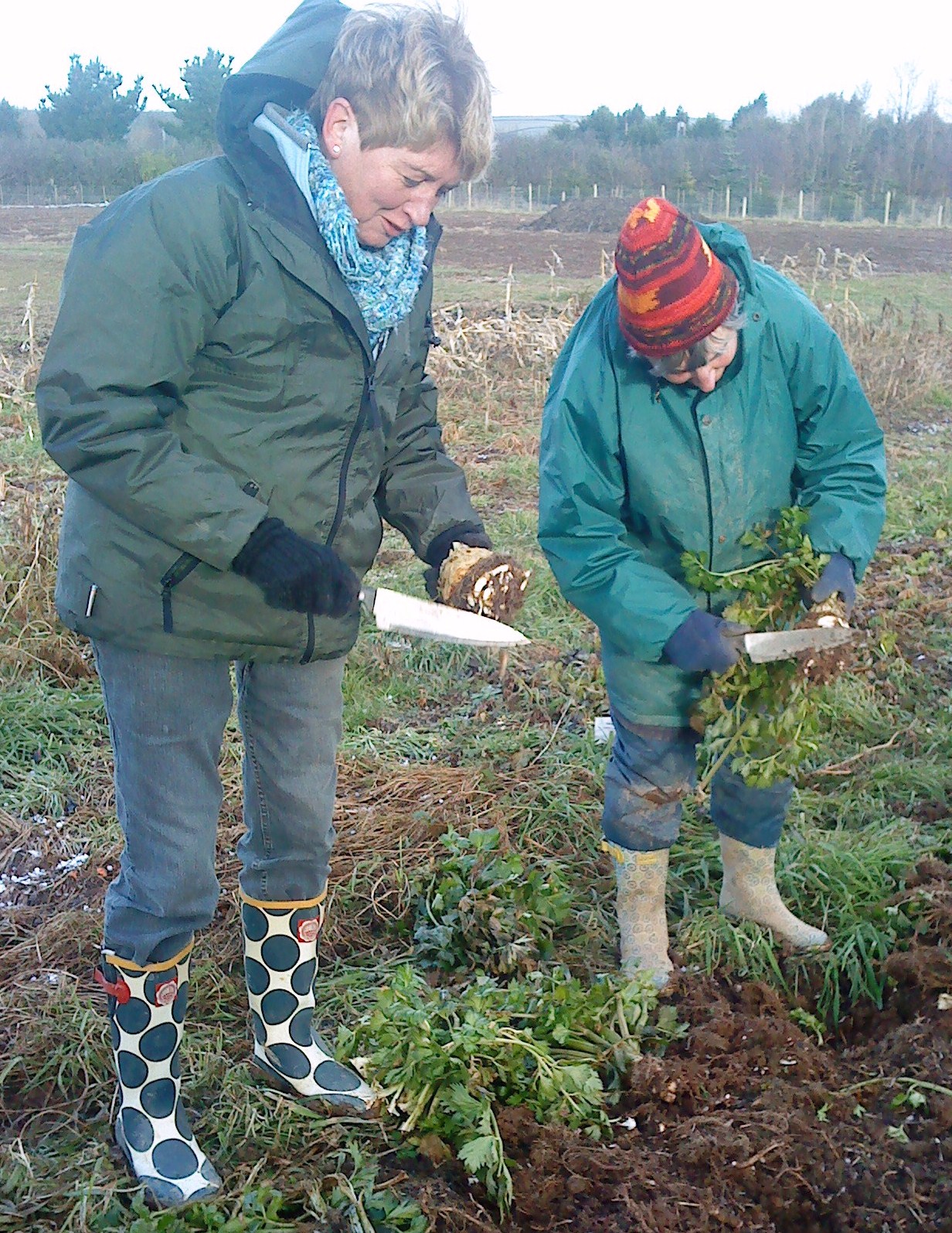
December 19, 2010
Our picking and packing team harvested the remainder of the celeriac this week. In spite of the freezing conditions in Cornwall – so unusual for this part of the UK – we managed to dig it up.
The celeriac came up with great chunks of frozen earth attached to it. Once the heavy clods were removed, the roots had to be trimmed. Not a pleasant job in a cold Cornish nor’easter.
We’re fortunate we can source so much local food, including what we grow ourselves. Nearly every week we’re able to fill the weekly veg boxes from within an eight-mile radius.
It means our food miles are low and our supply chain is short. And, unlike the big supermarkets, we’re less likely to get caught out by a shortage of fresh, seasonal produce when the weather turns against us.


